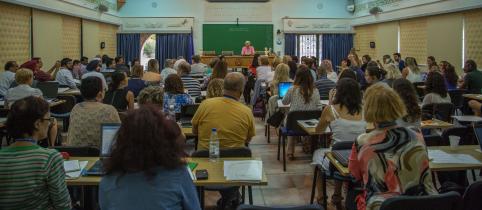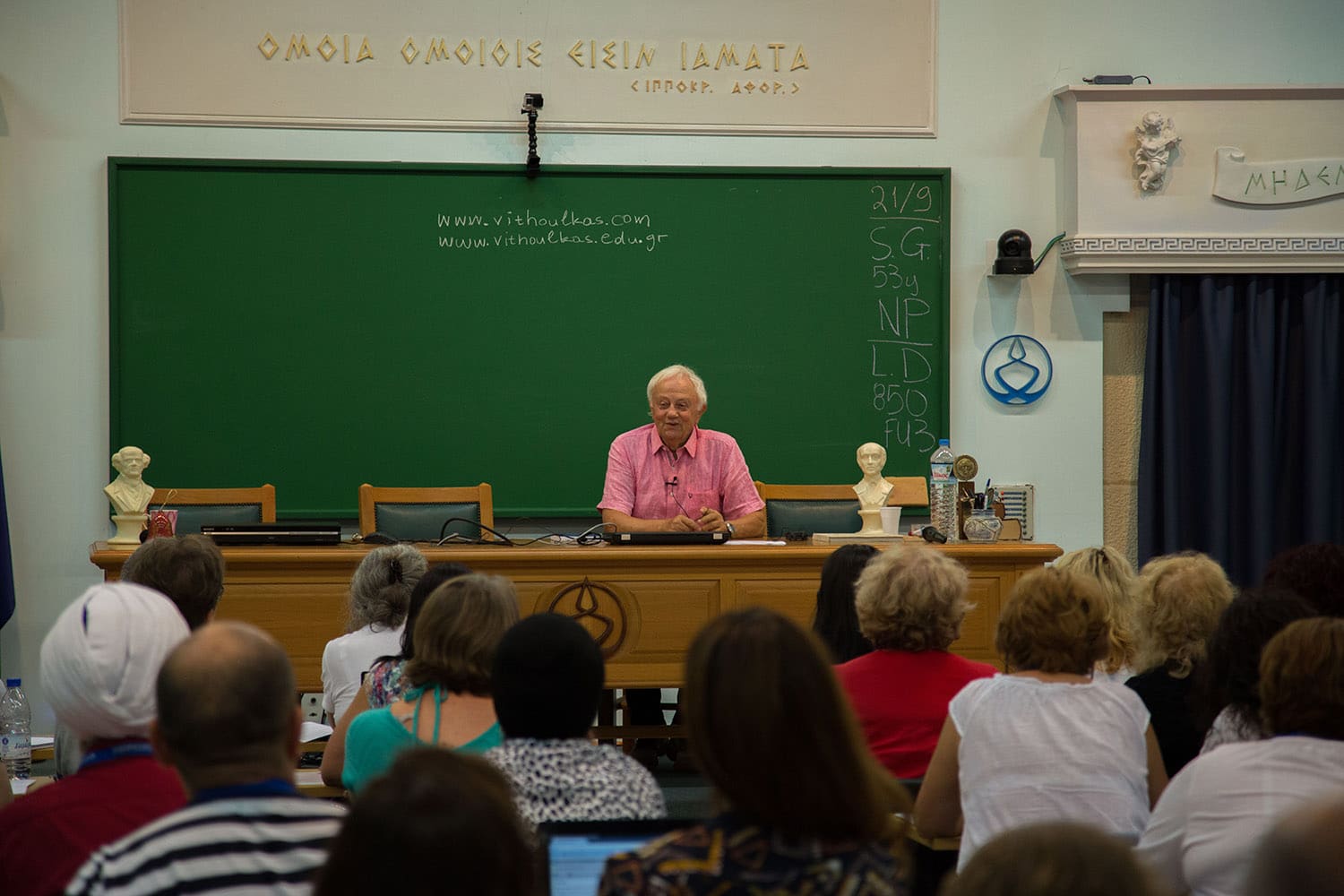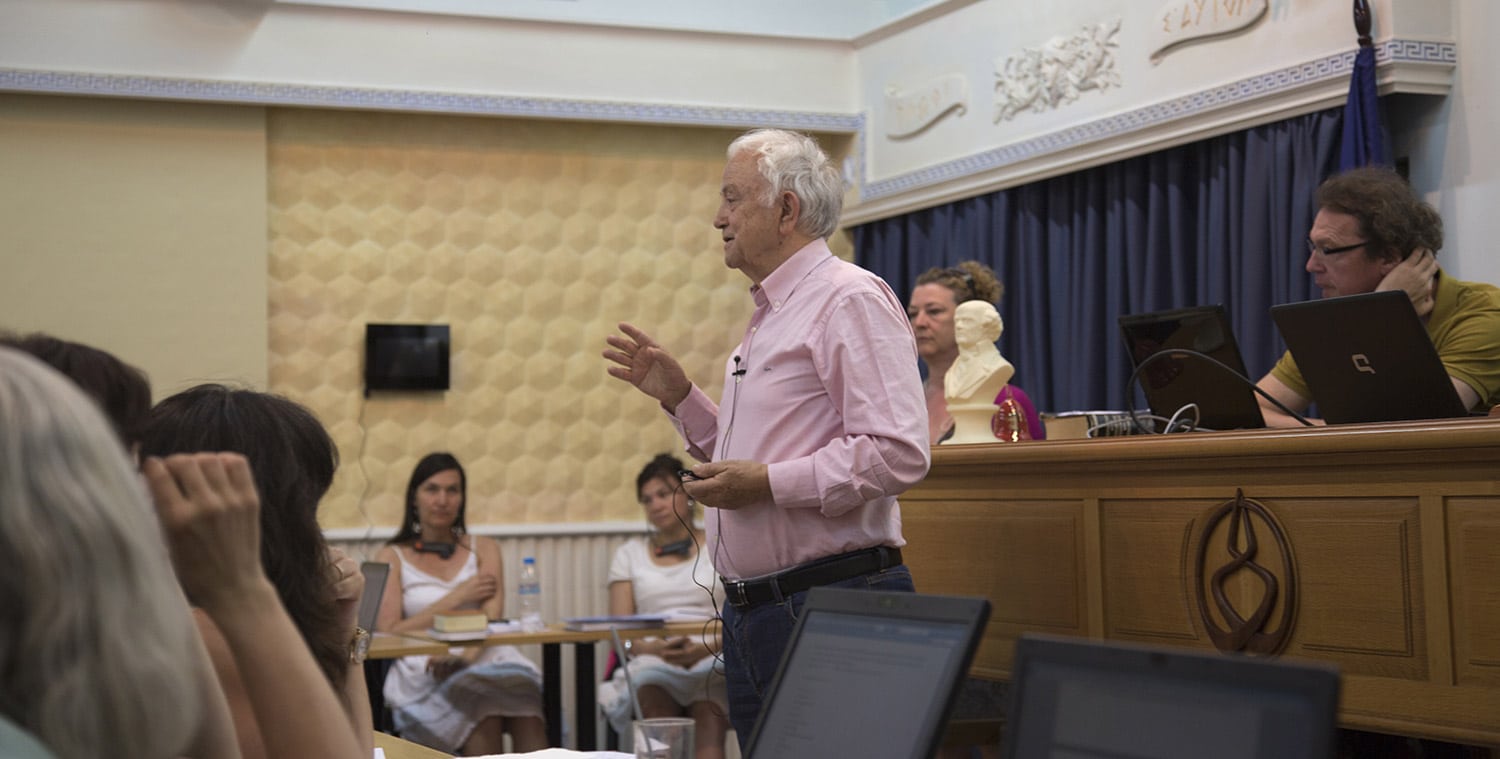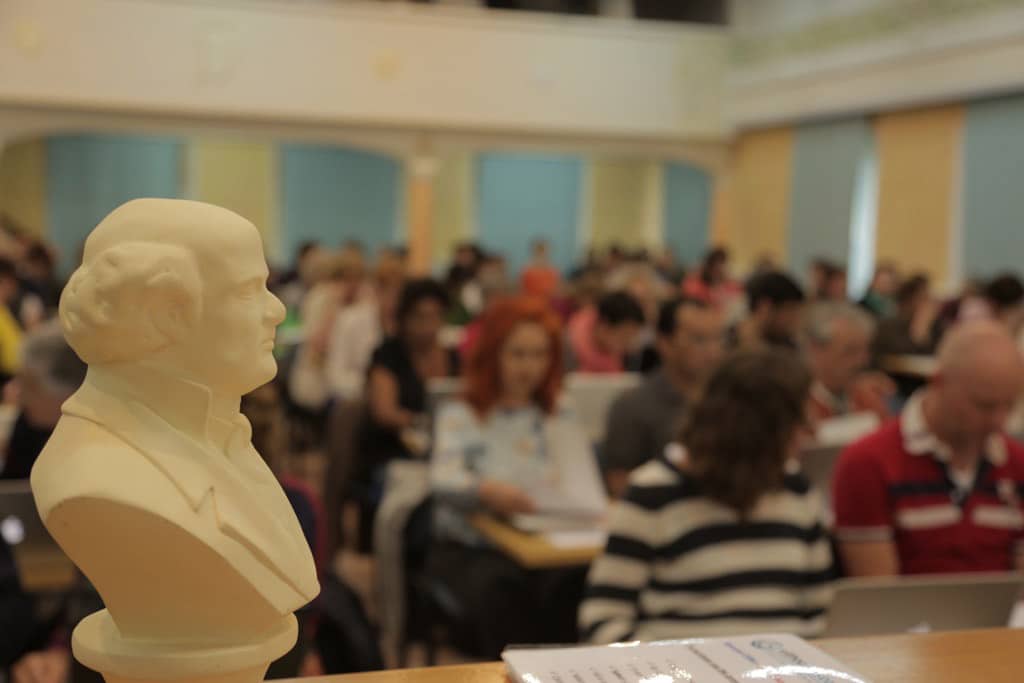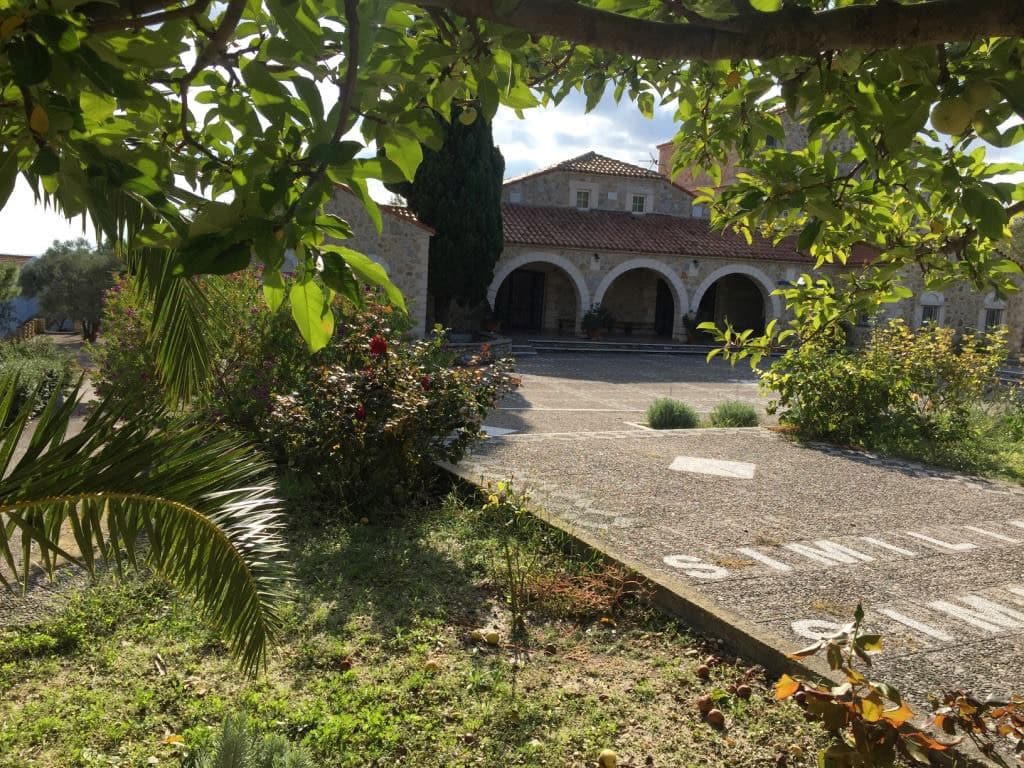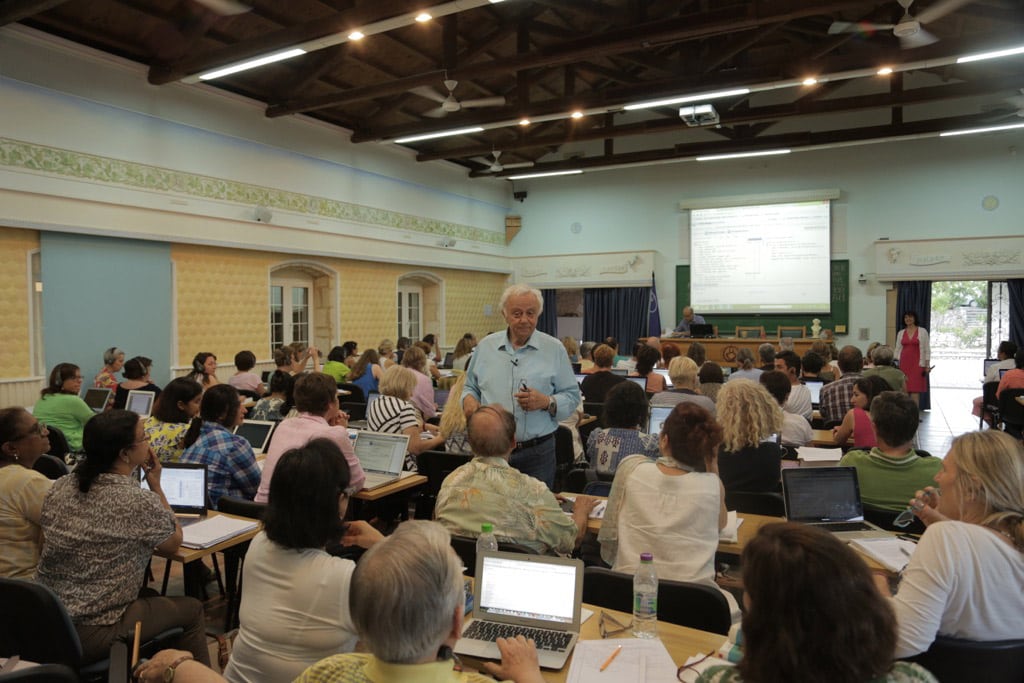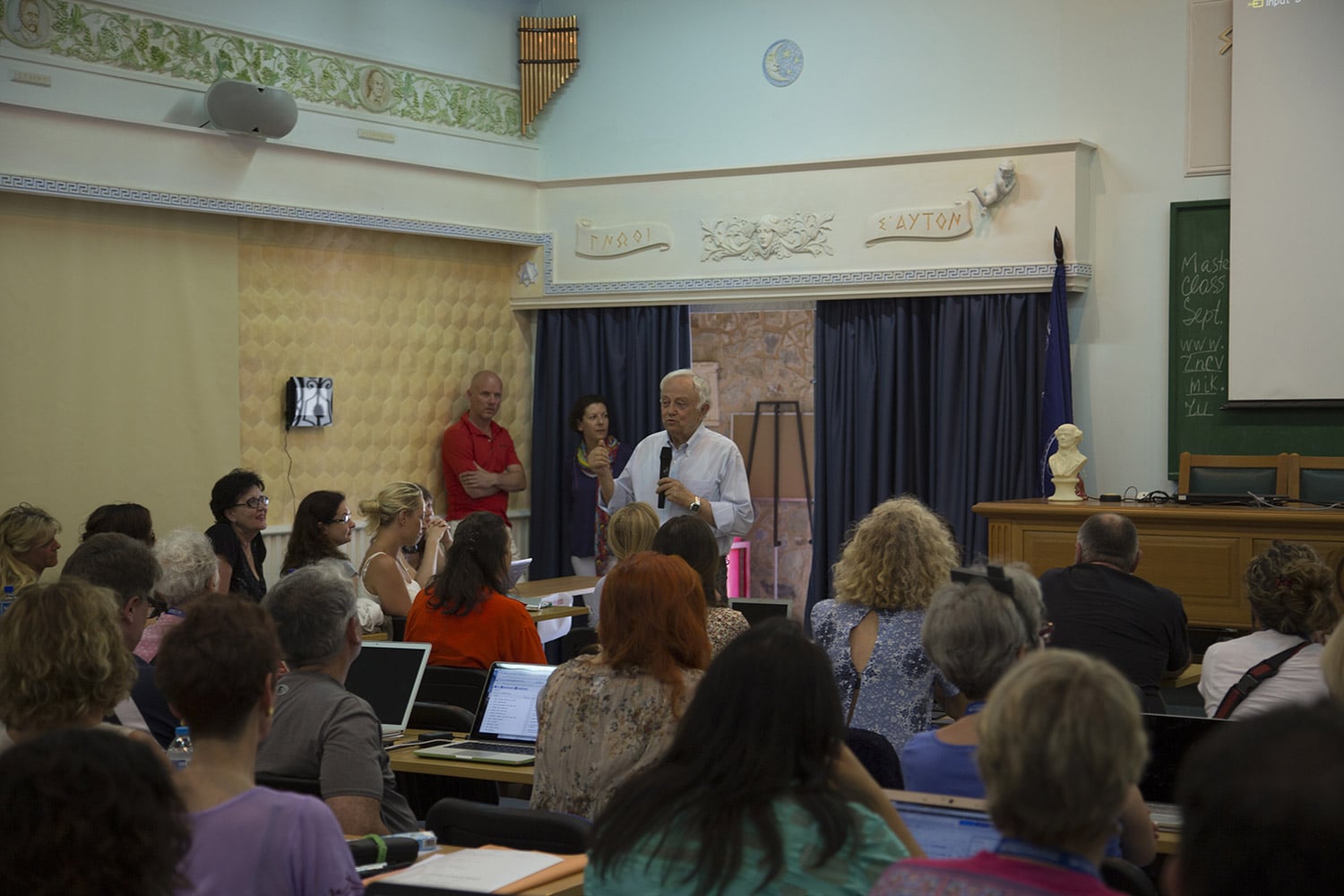It is interesting how Ian Sample tries to overturn facts in the area of homeopathy in favor of his cherished beliefs.
The discussion with him cannot be based but on facts.
Comment by George Vithoulkas to the article of Ian Sample in Guardian (26.10.2009)
It is interesting how Ian Sample tries to overturn facts in the area of homeopathy in favor of his cherished beliefs.
The discussion with him cannot be based but on facts.
Homeopathy, with its difficulties in explaining its mode of action, has only one, but great asset on its favor, that kept it going through the centuries in spite of rabid opposition: its effect on the sick. Its existence and sustenance in the medical arena was based on the fact that provided cures in chronic conditions for millions of people who would have been otherwise suffering for years.
The acknowledged relief of sufferings of the patient is the only parameter that could be accepted as “evidence based medicine” and homeopathy can provide this.
George Vithoulkas
Homeopathy licences based on ‘no scientific evidence’
Guardian.co.uk / Science/ Blog
by Ian Sample / 21.10.2009
http://www.guardian.co.uk/science/blog/2009/oct/21/pseudoscience
Rules drawn up to regulate homeopathic medicines are not underpinned by scientific evidence, according to government documents
The House of Commons science and technology committee is a wonderful thing. The attendees – overwhelmingly Labour and Lib Dems as it happens – identify serious issues and call on the best minds in the country to come and give evidence. This is pulled together and after some serious debate, the committee publishes concrete recommendations. This is how things should be done.
One of the committee’s recent drives has been to quiz government about its use of scientific evidence in policy making. They don’t have a great record on this, but I can’t think of a previous government that has.
Earlier today, the committee released the government’s responses to its latest round of “evidence checks” – in which the committee sensibly badgers departments to reveal the scientific evidence they consulted before tackling various issues. The responses include government’s justification – or not – for policies to improve literacy, the teaching of pseudoscience at universities and licensing homeopathic medicines. You can see the whole lot here.
The first few pages of the report cover homeopathy, in particular the scientific evidence used by the government to decide which homeopathic medicines to licence. It begins by explaining:
“Because homeopathic products have a long and established traditional use in the UK, the licensing regime functions primarily to ensure that they are both safe and of suitable quality. It also functions to provide improved and consistent product information for consumers.”
Except how it is supposed to work.
The response, from the Department of Health, lists three elements that make up the UK’s licensing regime, including the National Rules Scheme, which our Medicines and Healthcare Products Regulatory Agency brought in three years ago. On this, the department is clear:
“No scientific evidence was examined in drawing up the National Rules Scheme…”
Some of the other responses are more heartening, but I won’t go through all of them in detail here.
One more I will mention is the committee’s request to the Department of Business, Innovation and Skills, for information on the government’s position on universities offering BSc and MSc degrees for courses that are blatantly pseudoscientific.
The DBIS response begins:
“The government does not find it helpful to define pseudoscience.”
And goes on to say, essentially, that universities can run whatever courses they like, no matter the quality.
It’s a good start for the committee and refreshing to see the government being called to account on the evidence that underpins its actions.

